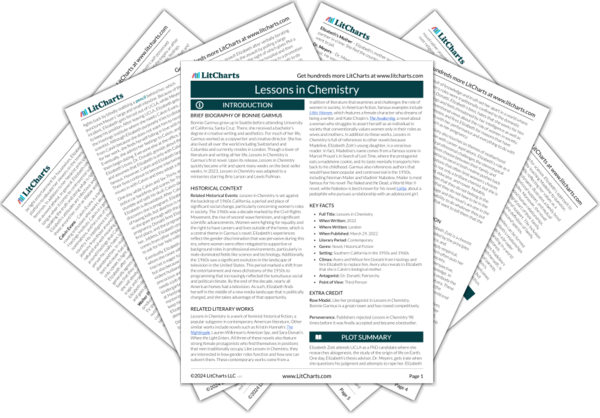AI ToolsNew
Tools to make learning and teaching easier
|
Previous
Chapter 41: Recommit
|
Lessons in Chemistry: Chapter 42: Personnel Summary & Analysis |
Next
Chapter 43: Stillborn
|


Upgrade to unlock the analysis and theme tracking for all of Lessons in ChemistryLessons in Chemistry!
Get LitCharts A+